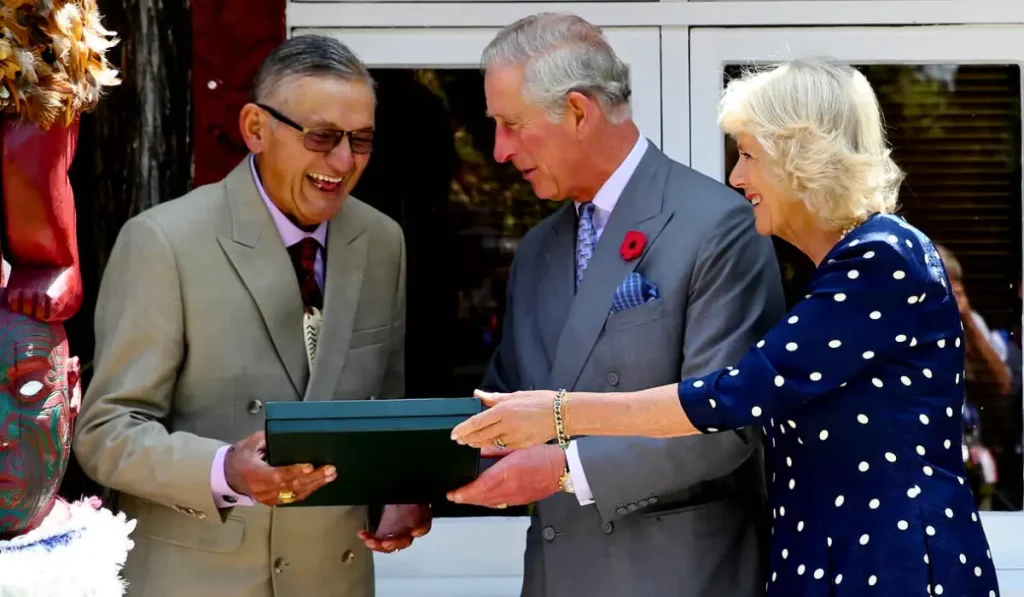New Zealand is mourning the loss of its Māori King, Kiingi Tuheitia Pootatau Te Wherowhero VII, who passed away on Friday at the age of 69. His death marks the end of an 18-year reign that was deeply rooted in the Māori King Movement, known as Kiingitanga, which has sought to preserve Māori culture and unity for over a century.
A Legacy Of Leadership And Cultural Preservation
Kiingi Tuheitia was the seventh monarch in the line of the Māori King Movement, which was established in 1858 as a response to British colonization. The movement aimed to unite the Indigenous Māori tribes, prevent the sale of Māori land to non-Indigenous settlers, and protect Māori culture in the face of growing colonial pressures. Over his nearly two decades on the throne, Tuheitia became a powerful symbol of Māori identity and a guardian of its traditions.

While the role of the Māori King is largely ceremonial, Tuheitia’s influence stretched far beyond symbolic acts. He consistently advocated for Māori rights, worked to foster unity among the tribes, and served as a respected cultural figure for many Māori people. His efforts helped to elevate Māori issues on the national stage in New Zealand, where the Māori population accounts for almost 20% of the total population.
Recent Health Struggles and Death
Tuheitia’s death came just days after he celebrated the 18th anniversary of his coronation. The King had been facing health issues in recent years, and he passed away following complications from heart surgery, according to a statement from Rahui Papa, a spokesperson for the Kiingitanga. His death has deeply affected followers of the movement and has been met with widespread grief across the country.
Prime Minister Christopher Luxon paid tribute to the late monarch, acknowledging his unwavering commitment to Māori people and his efforts to uphold the values of Kiingitanga. “King Tuheitia’s leadership left an indelible mark on our nation,” Luxon said. He praised the King’s dedication to future generations and his passion for advancing the Māori worldview, also known as te ao Māori. The Prime Minister emphasized how Tuheitia envisioned a future where all people were treated with respect and dignity.
An Outpouring of International and National Grief
The passing of King Tuheitia has not only impacted the Māori people and New Zealand as a whole but has also drawn the attention of international figures. King Charles III, New Zealand’s constitutional head of state, expressed his profound sadness upon hearing the news. King Charles shared that he had known Tuheitia for many years and respected his deep commitment to both the Māori people and the future of New Zealand. The British monarch praised Tuheitia for his wisdom, compassion, and dedication to cultural preservation and healing.
In the days leading up to his death, thousands of people gathered at Turangawaewae Marae, the traditional headquarters of the Māori King Movement located in Ngāruawāhia, to celebrate Tuheitia’s 18-year reign. This annual event, known as Koroneihana, brought Māori from across the country to honor their King and reflect on the significance of his leadership.
The Future of Kiingitanga
As the Māori King Movement mourns the loss of its leader, the question of succession is now at the forefront. The King’s position is held by the Tainui tribes, but it is not yet clear who will succeed Tuheitia. Traditionally, the role of the Māori King has passed down through generations of the same family, and it is likely that a close relative will be named as his successor. However, no official announcements have been made.
According to spokesperson Rahui Papa, the late King will lie in state at Turangawaewae Marae for five days, giving people an opportunity to pay their respects. After this period, Tuheitia will be taken to his final resting place on Taupiri Mountain, a sacred site for the Tainui tribes.
The death of King Tuheitia is a pivotal moment for Māori people and New Zealand as a whole. While his leadership may have been primarily symbolic, his influence on both Māori unity and the broader cultural and political landscape of New Zealand was profound. As the nation waits for the announcement of his successor, there is little doubt that his legacy will endure, continuing to inspire Māori and non-Māori alike.

